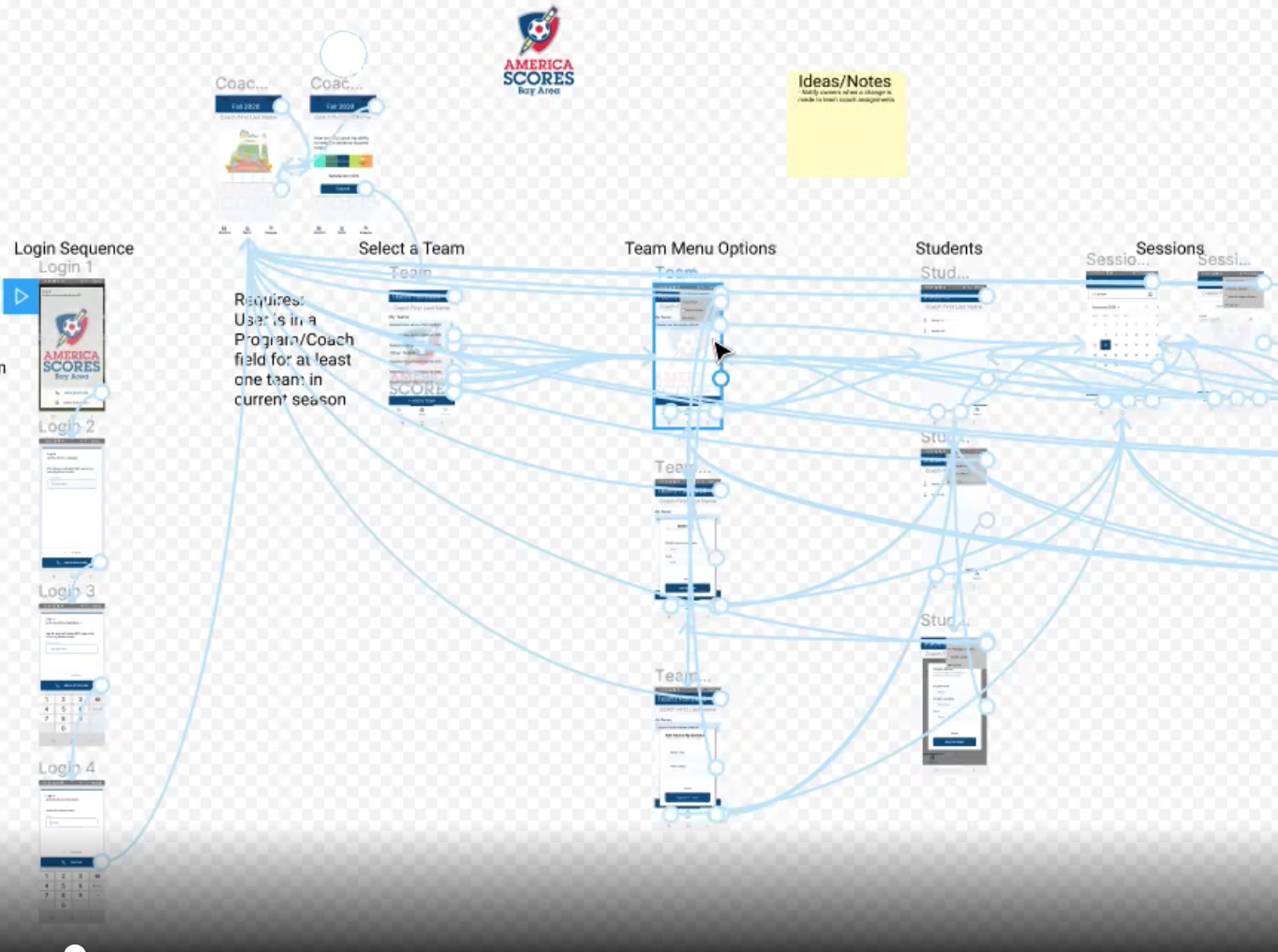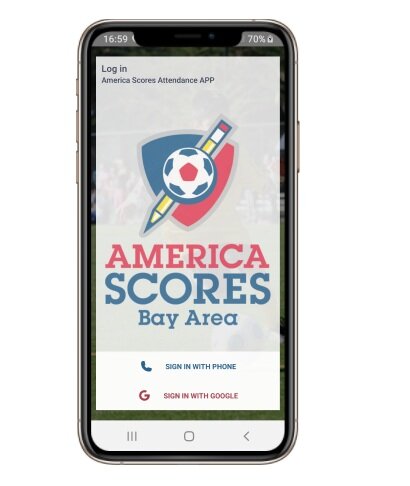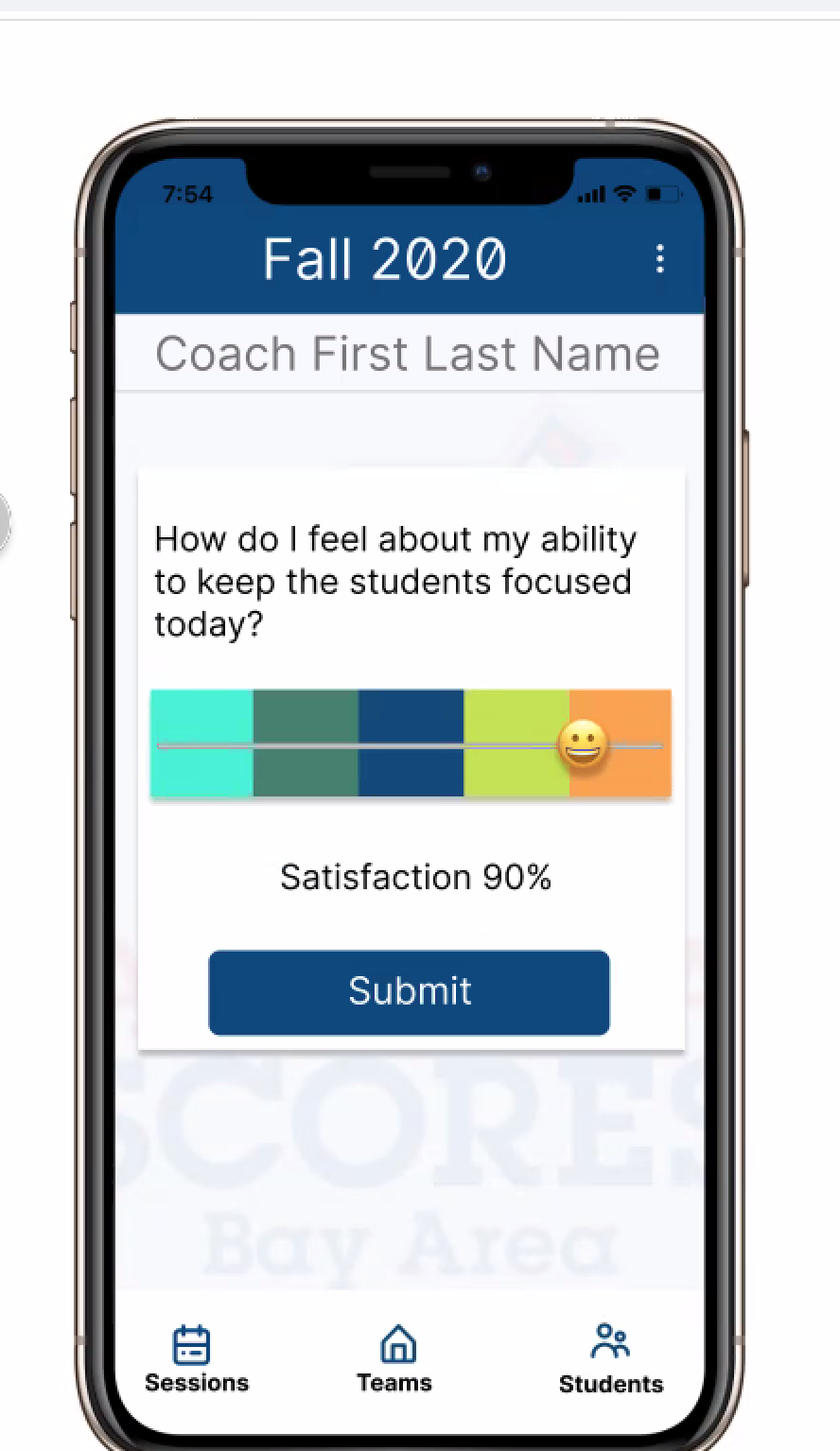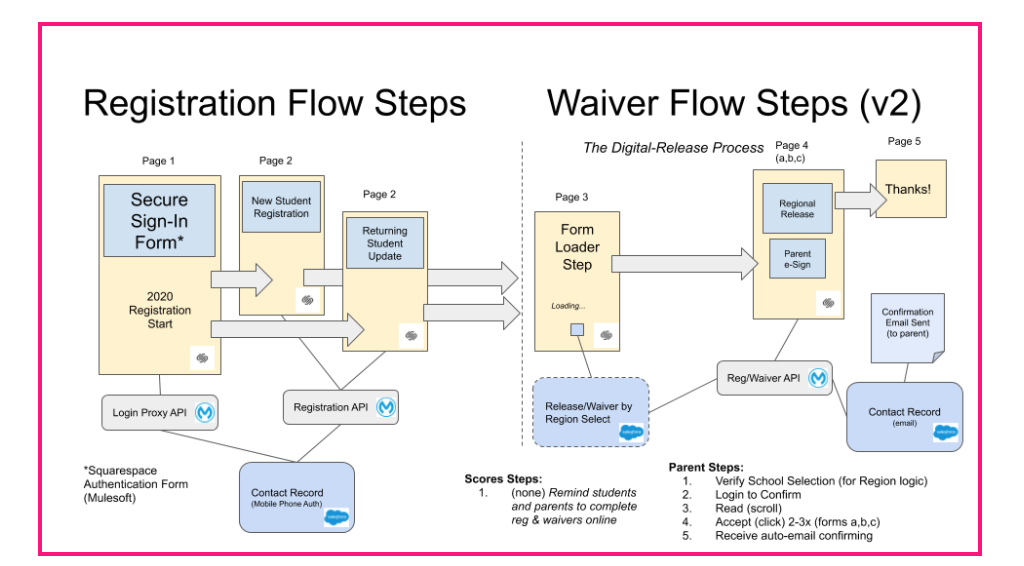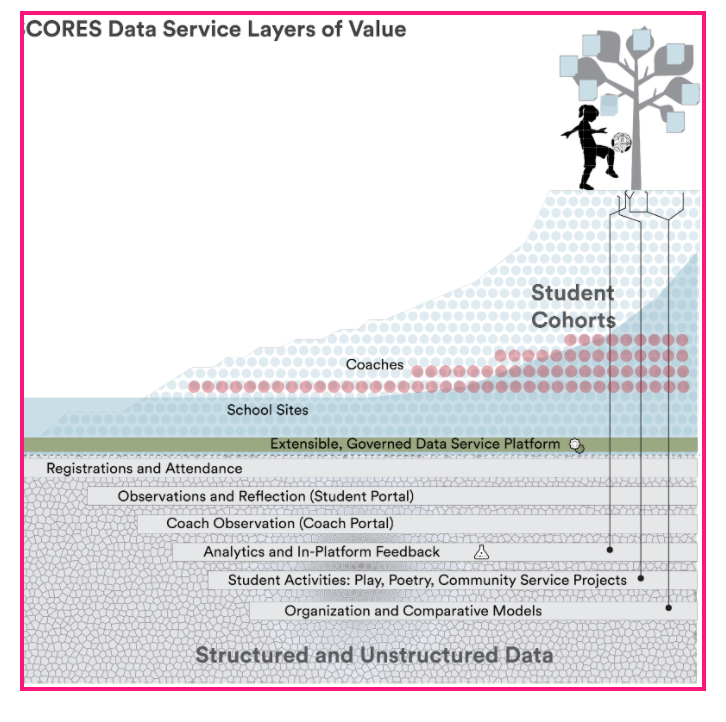Launching SCORES Labs
SCORES Labs is a technology-first initiative to leverage software and pro bono engineering talent to dramatically expand the organization’s impact and ability to provide services to more children and low-income communities. Spurred on by rapid changes in the tech industry and fueled by challenges wrought by the pandemic, SCORES Labs encompasses the organization’s game-changing partnership with MuleSoft and its strategic decision to become a data-informed and data-fluent organization.
“SCORES Labs allow us to organize open source software projects into discreet and achievable goals that can be worked on by talented volunteer developers,” explains SCORES Executive Director Colin Schmidt. Open-source software is code that is available and accessible to anyone who wants to see it, modify it, or distribute it. Engineers collaborate on open source projects in a fully transparent, secure, and tech industry-respected process.
The first wave of projects in SCORES Labs focuses on data flow and data governance. The projects tackle fundamental questions: How is data captured? Where does it flow and how is it stored? How is it presented to different users and stakeholders? How is privacy ensured at every step, and how is all of this done at scale? “Data in these cases could be registration information, student attendance, team rosters, evaluation assessments,” Schmidt explains. Future SCORES Labs projects could include tools to collect and share student poetry, support remote collaboration among students and coaches, and improve marketing and communication methods to coaches, parents, donors, and other stakeholders.
So what does this mean from a numbers standpoint? What’s all this worth? The partnership with MuleSoft alone has resulted in more than 600 hours of pro-bono engineering and professional support. MuleSoft also provided hardware (primarily laptops) and software licenses valued at over $500,000.
Until quite recently, realizing the full potential of technological advances simply wasn’t a strategic priority for most nonprofits, in part because doing so demanded significant financial resources and in-house expertise. “A classic injustice in the technology divide has traditionally been that the human-focused and impact sector gets the dregs of the technology world’s tools and expertise,” says SCORES CTO Pete Swearengen.
The technologies of content delivery, data analysis, and mobile apps continue to evolve rapidly, challenging companies and organizations to continually consider adaptation. No longer do a small handful of major tech players rule the industry. Now, hundreds of companies are releasing competitive products to the marketplace. Simultaneously, the process of technological innovation has been turned inside out. With the advent of open-source software development, product innovation has become a collaborative, democratized process.
All of this is a boon for the nonprofit sector. “There are now dozens of valuable tools and platforms to consider. We no longer need to wait for things to filter down to us. The tech industry is competing for our business, prioritizing our needs in their design and product models. And where they don’t, we extend, adapt, and build our own,” Swearengen says.
At the center of SCORES Labs is the open-source software development platform Github. “Github is like an open workshop with a big table in the middle with everything that’s being worked on spread out on that virtual table,” Swearengen enthuses. Now imagine a big folder on that table holding SCORES’ innovation requirements and technology goals. By putting that virtual folder on the table, SCORES reaches thousands of engineers eager to expand their skillsets and have their work reviewed and improved upon by their professional peers through a permanently tracked and recognized process.
Engineers and developers seek out Github projects both to further their own careers and because many enjoy pushing the limits of technology forward. “It’s not just about volunteerism. It’s opportunism,” Swearengen explains. “Engineers need opportunities to apply their skills and talents in ways that build their portfolios and resumes beyond their current positions. They gain experience and exposure.” SCORES Labs offers hands-on projects involving a growing list of technology including Mulesoft Anypoint and Dataweave, Salesforce and the Nonprofit Success Pack, Tableau, Github, Google Drive, Slack, Heroku, AWS Lambda, Node, iOS and AndroidOS, javascript, Typeform, Unity, and MongoDB.
Last fall, encouraged by the success of working with MuleSoft engineers, Swearengen began thinking about developing an app that could radically streamline the daily student attendance and tracking efforts for coaches. The need was clearly there, but customization to SCORES’ specific needs was key.
“We had data coming in every which way, with families filling out forms with pencil and paper and staff then translating that information into one or two online systems,” says Schmidt, who has been working closely with Swearengen to develop SCORES Labs. “It was burdensome for school district administrators and other partners as well, requiring too much staff time and creating confusion at the parent/family level, particularly for non-native English speakers.”
Swearengen envisioned a radically simpler and streamlined approach, where coaches could easily take in information through an app on their phones, which would then flow directly into a home database hosted by Salesforce. “The impulse to develop this app was driven by a human need,” he says. The cost burden of accessing and managing data came at the cost of the coach-student relationship; it took time away from coaches that they could be spending on their students and created too many hurdles for families.
After loading up the project description on Github, Swearengen began working with a small team of engineers from MuleSoft, led by Santosh Mankala. Engineers at earlier stages in their careers, including Carlos Santiago Yanzon and Ignacio Lopez Scala from Argentina and Archana Llamas from New Zealand, joined the effort from their further-flung locations. SCORES Program Coordinator Kevin Calderon began advising the group on the specific needs and interests of coaches. The team began meeting three times a week, established workflows, and launched several projects simultaneously.
SCORES Labs and Mankala’s team began using the channel-based messaging platform Slack as their core communications tool. “Slack serves as a sort of central nervous system for the entire organization in understanding impact and value,” says Swearengen, who points to nonstandard and creative ways program coordinators are using the service to convey direct feedback on the developing app to Mankala’s open source engineering team.
For Mankala, the pull to the SCORES Labs project was clear. Born and raised in a small town in India, he remembered growing up in a time and place without access to computers or the Internet, let alone soccer and poetry, even at his English language school. ”Working with America SCORES connects me to my past,” he explains. “I want to help kids and coaches in underserved communities with the skills that I have, so I jumped right in.”
Doing so resonated with his own experience and value system, but also with the values of both MuleSoft and Salesforce. “As Marc Benioff always says, business is the greatest platform for change. MuleSoft has a tremendous opportunity in front of us to transform this world for good and to help nonprofits across the world. We can help create a better and more inclusive world for everybody,” he says.
MuleSoft recently honored Mankala and his team with an innovation award. In a presentation to all of MuleSoft, Emily Fisher, Executive Assistant to CEO Brent Hayward, said, “Santosh and his team really embraced the idea of using technology for good. Instead of volunteering for a few hours using just basic skills, they recognized that they could bring the power of MuleSoft to this small nonprofit.” The impact was immediate. “SCORES Executive Director Colin Schmidt described the experience as being like a small moped strapped to the back of a rocket booster,” Fisher evocatively describes.
“Swearengen is just one person, but with SCORES Labs, he has created a way to tap into the passions of dozens of engineers,” explains Schmidt. “With GitHub and the open-source model, we can make huge advances that once seemed impossible for a small non-profit organization. The success of this endeavor will require replicating partnerships like the one started by MuleSoft and continuing to engage new talent in developing projects.”
SCORES already has a good track record on that front, notably in the organization’s collaboration with individual engineers like Steven Truong at Ripple, who helped build the organization’s digital platform to serve students during the pandemic, and Matt Kern from Accenture, who helped develop a “sync robot” to move data between SCORES and district-level contract management systems.
Schmidt puts it simply. “SCORES Labs is our ticket to the future. We aspire to be a model for non-profits with big ambitions to create technological solutions that drive tangible impact.”
Inspired or curious? You can check out https://developers.americascoresbayarea.org
Developers can request to join the team at https://github.com/orgs/AmericaSCORESBayArea/teams/os-developers



